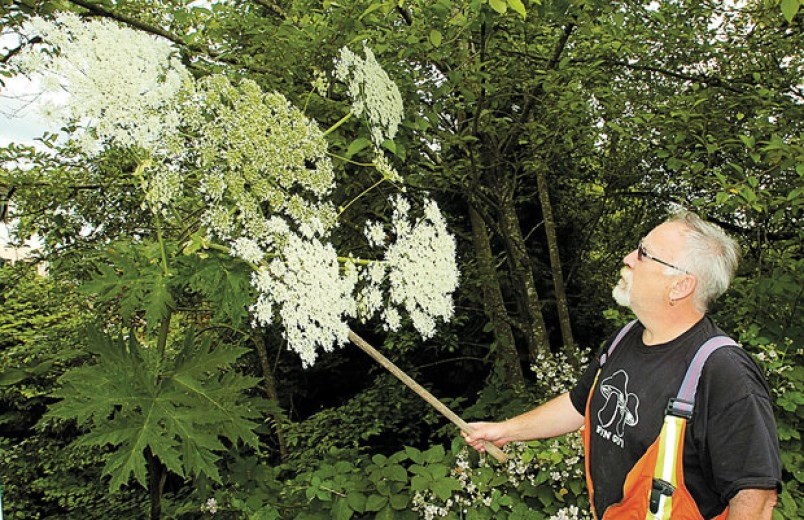Victory appears to be close at hand for Coquitlam in its battle against at least one invasive plant species.
The prevalence of giant hogweed, the sap of which is toxic and can cause severe skin inflammation, has been significantly reduced in the city, with only one site left that has been treated and monitored. Close to 40 cases since 2006 have been treated and monitored with no signs of reoccurrence.
Despite the fact giant hogweed is receding across the city, Caresse Selk, Coquitlam’s urban forestry and park services manager, said staff will have to remain vigilant to ensure it does not return.
“We will need to continue monitoring the giant hogweed sites well into the future,” she said. “The seeds can remain viable in the soil for up to 15 years, so it’s an ongoing battle.”
Selk credits the city’s Bad Seed campaign and there is an online reporting program (coquitlam.ca/reporthogweed) that has allowed staff to deal with issues before they spread.
“We’ve been proactively monitoring and removing giant hogweed for the last 13 years,” she said. “Persistence pays off.”
But that does not mean the war against invasive plants is over. English Ivy, morning glory and Japanese knotweed are still common across the city and, while not likely to cause burns like giant hogweed, can be just as big a nuisance.
Selk said the city hosts work parties throughout the year with community groups, churches and businesses to help remove the plants in areas where they are commonly found, such as parks and green spaces.
HOW YOU CAN HELP
The city is asking residents to pitch in and remove invasive plant species from their property. Residents are asked to help by:
• learning how to identify common invasive plants at www.coquitlam.ca/badseed;
• being aware of the city’s pesticide use controls and the substances that are restricted at www.coquitlam.ca/pesticides;
• containing or removing invasive plants on their property to prevent them from spreading;
• never dumping garden waste or hanging baskets into parks or natural areas;
• disposing of invasive plant materials in the green cart, with the exception of giant hogweed, which can cause burns (best to call a professional for hogweed removal);
• cleaning off boots and shoes to get rid of hitchhiking weed seeds to prevent these species invading a new area;
• and volunteering to participate in a local weed-pulling event and helping remove invasive plants from a Coquitlam parks.
@gmckennaTC



